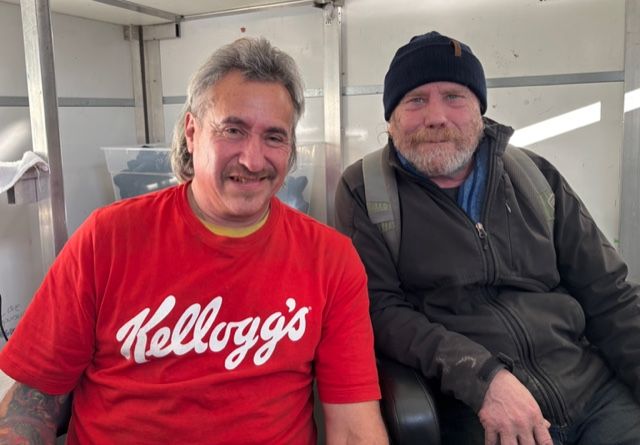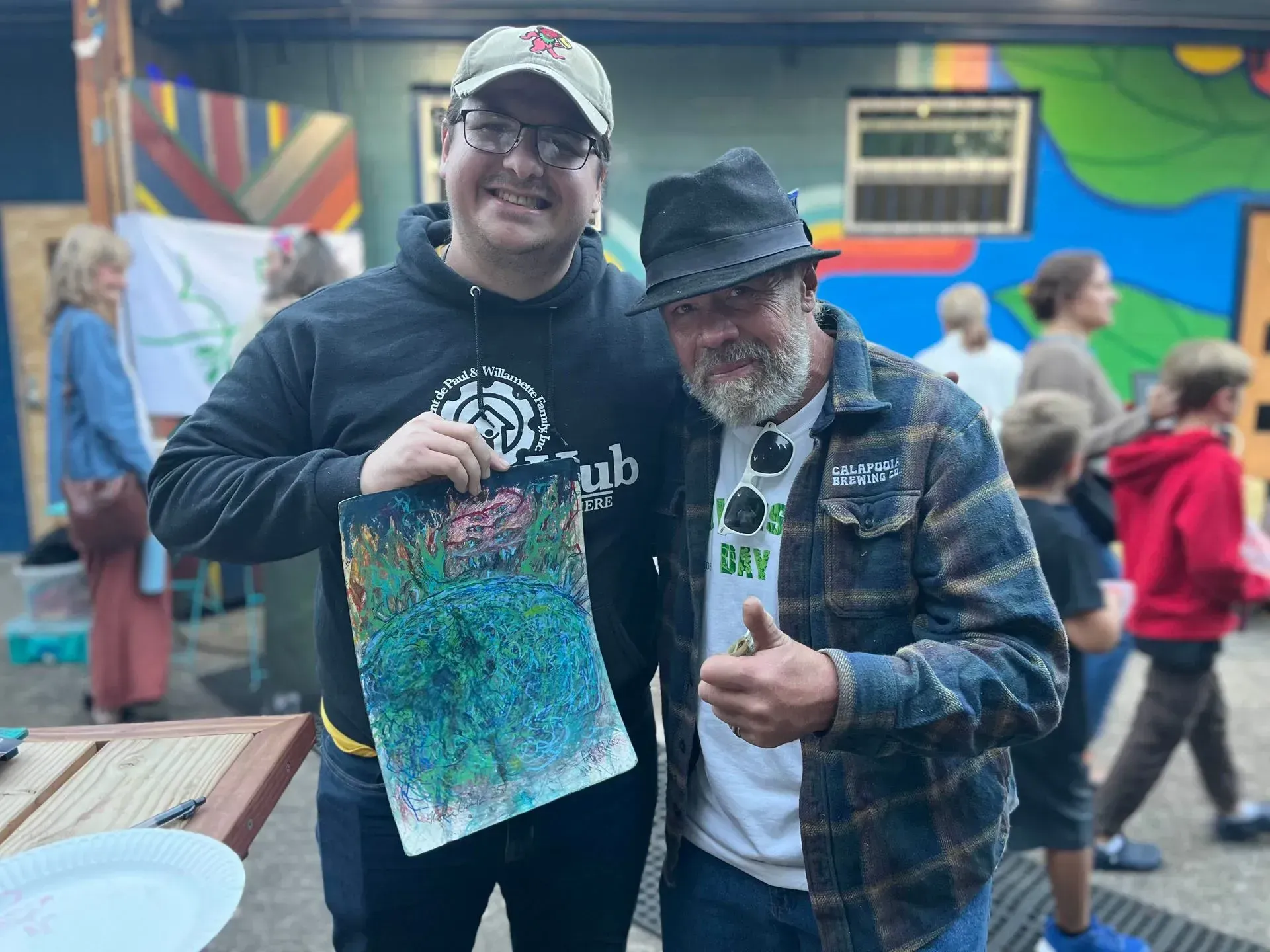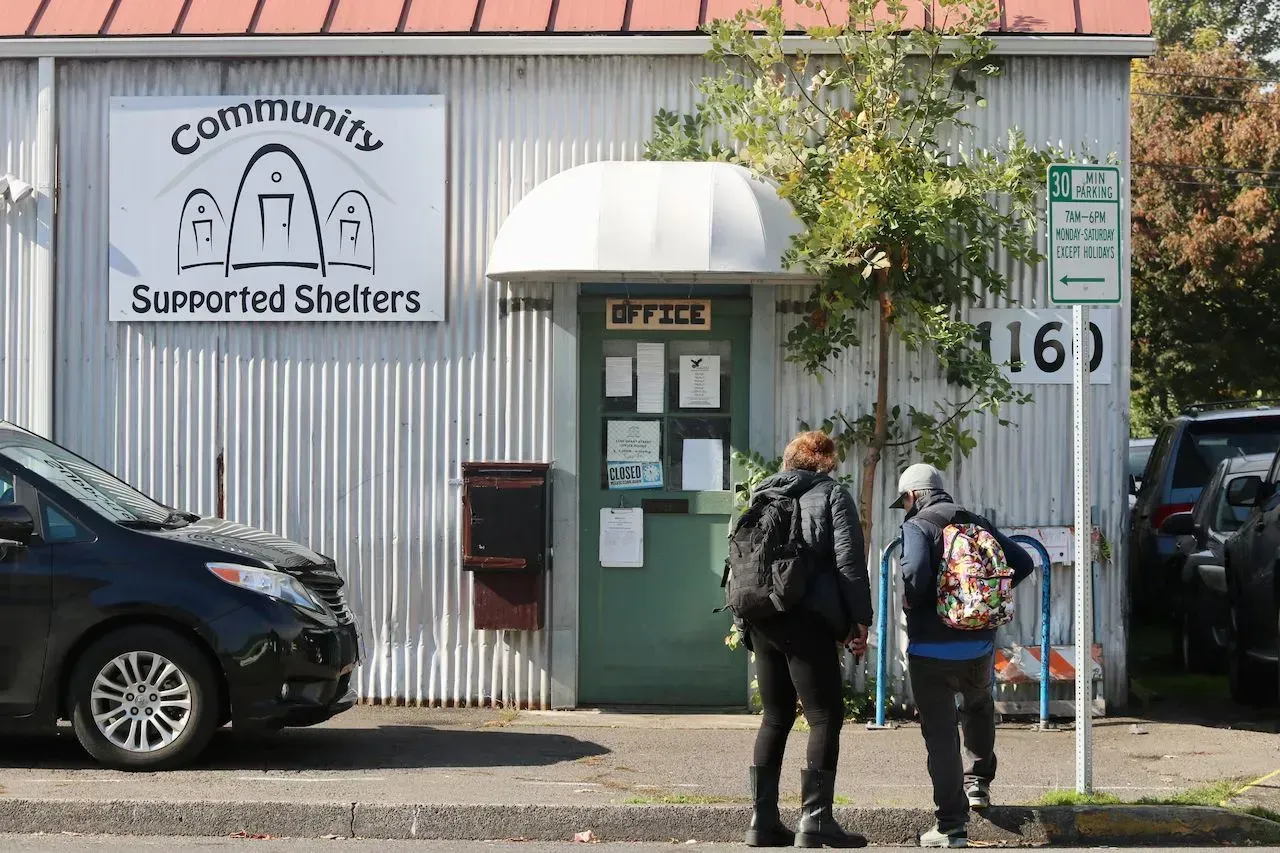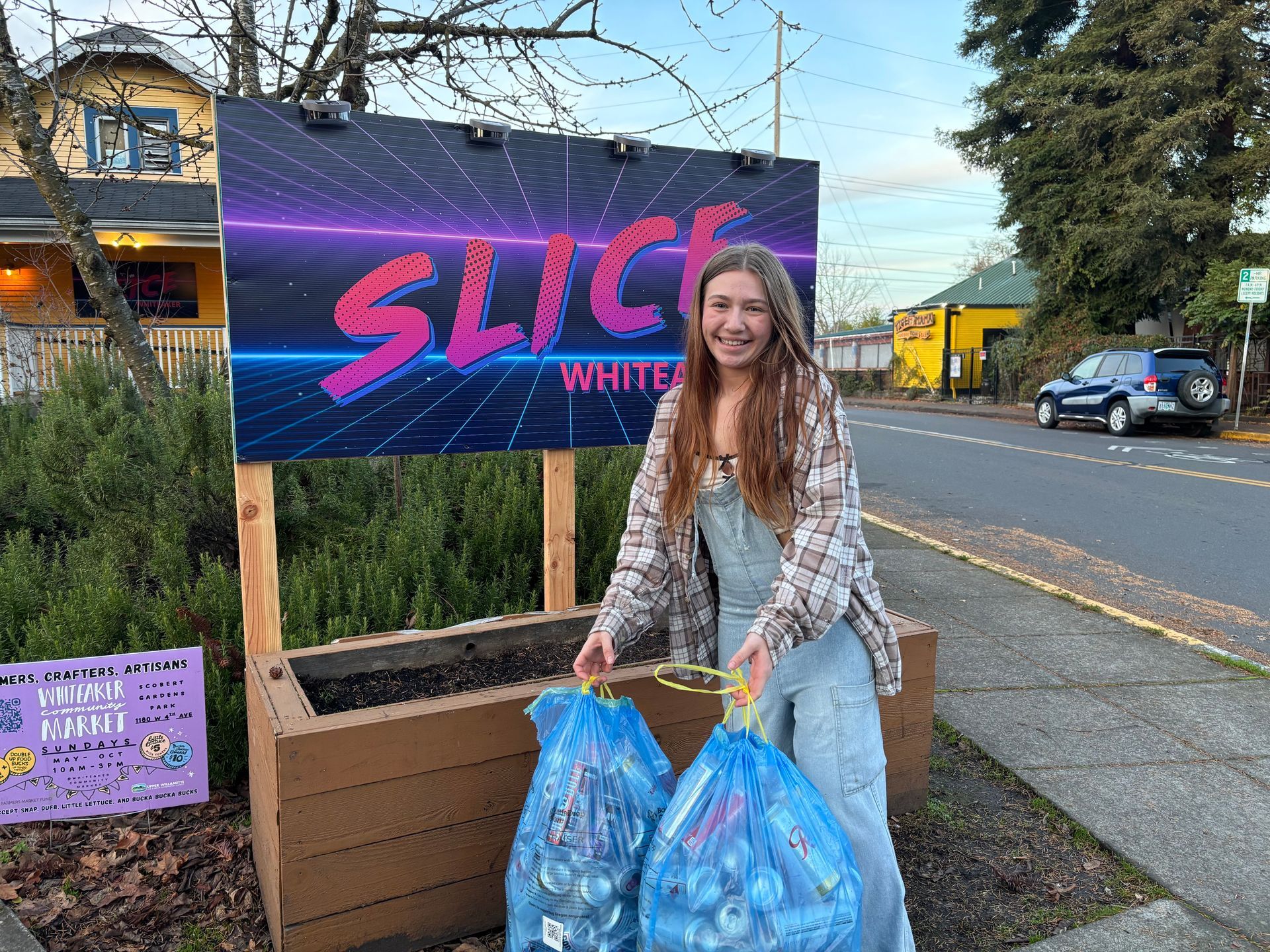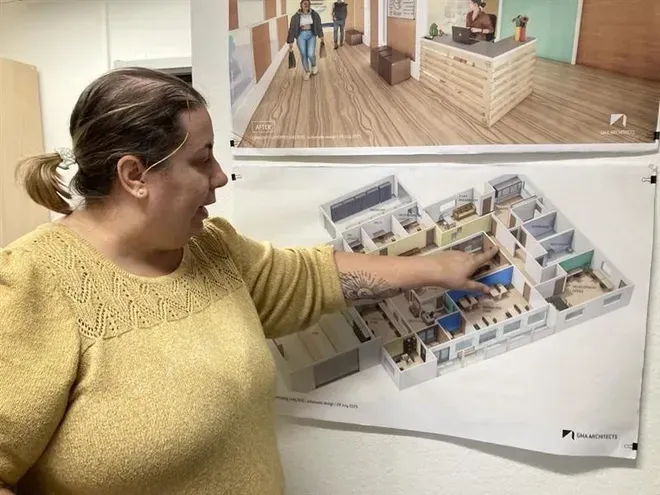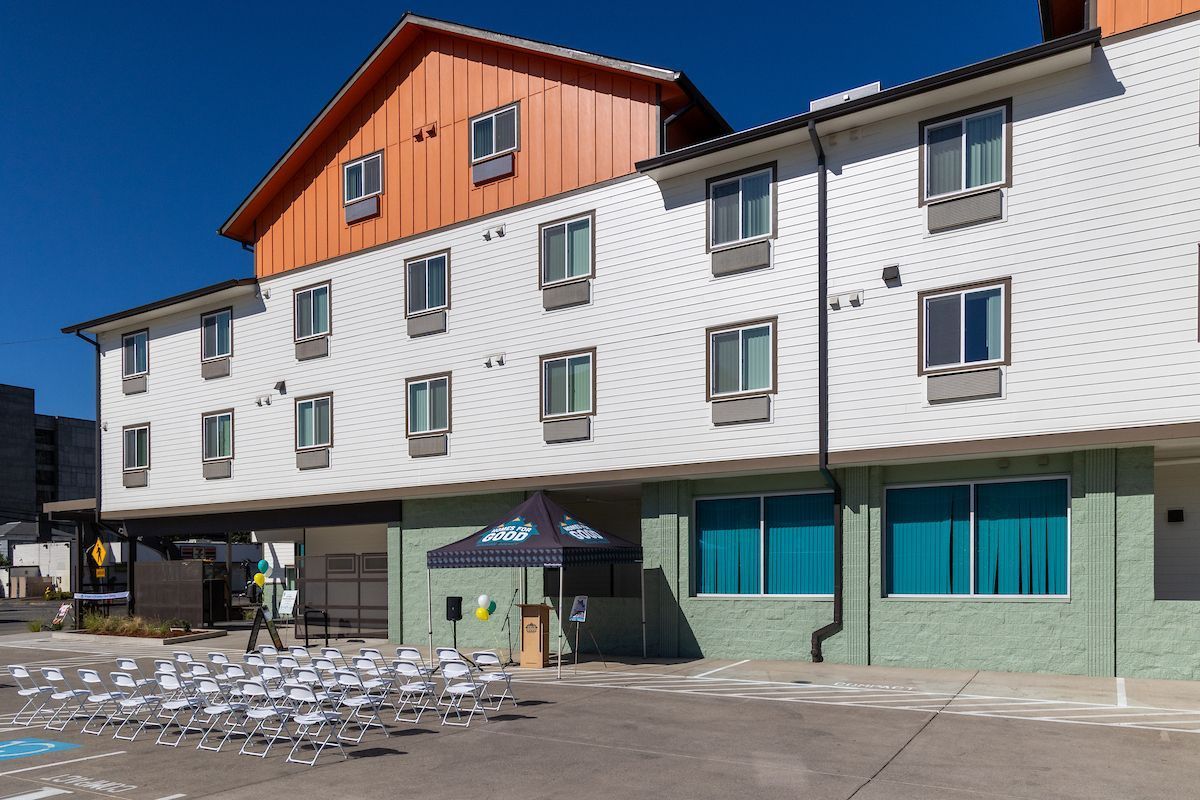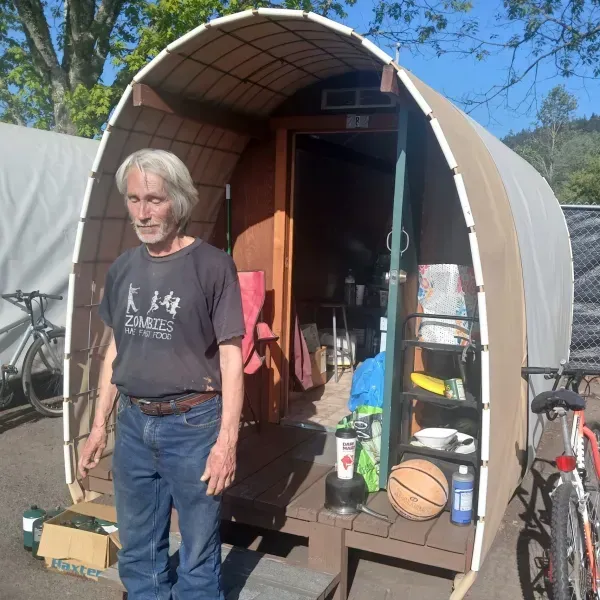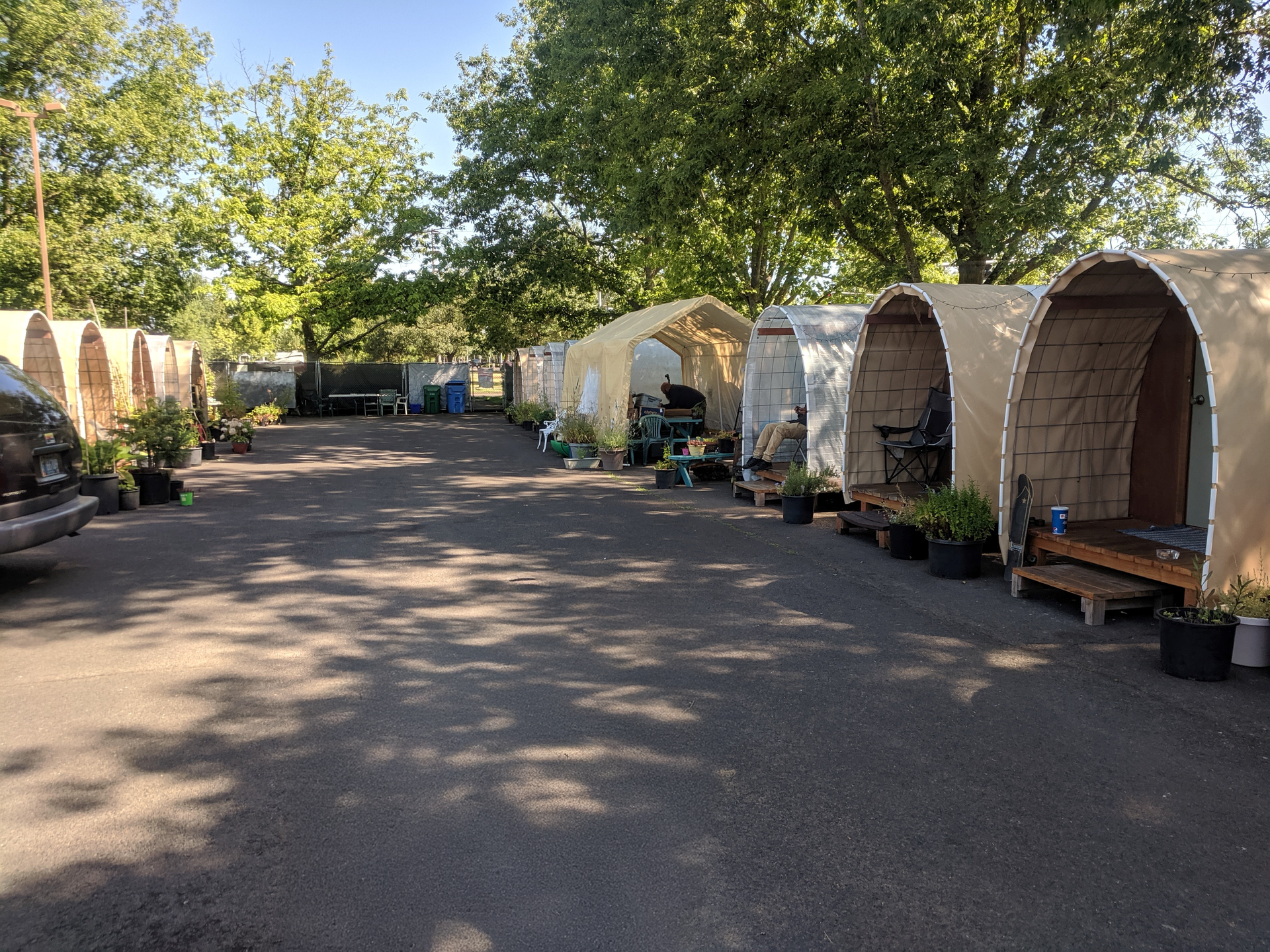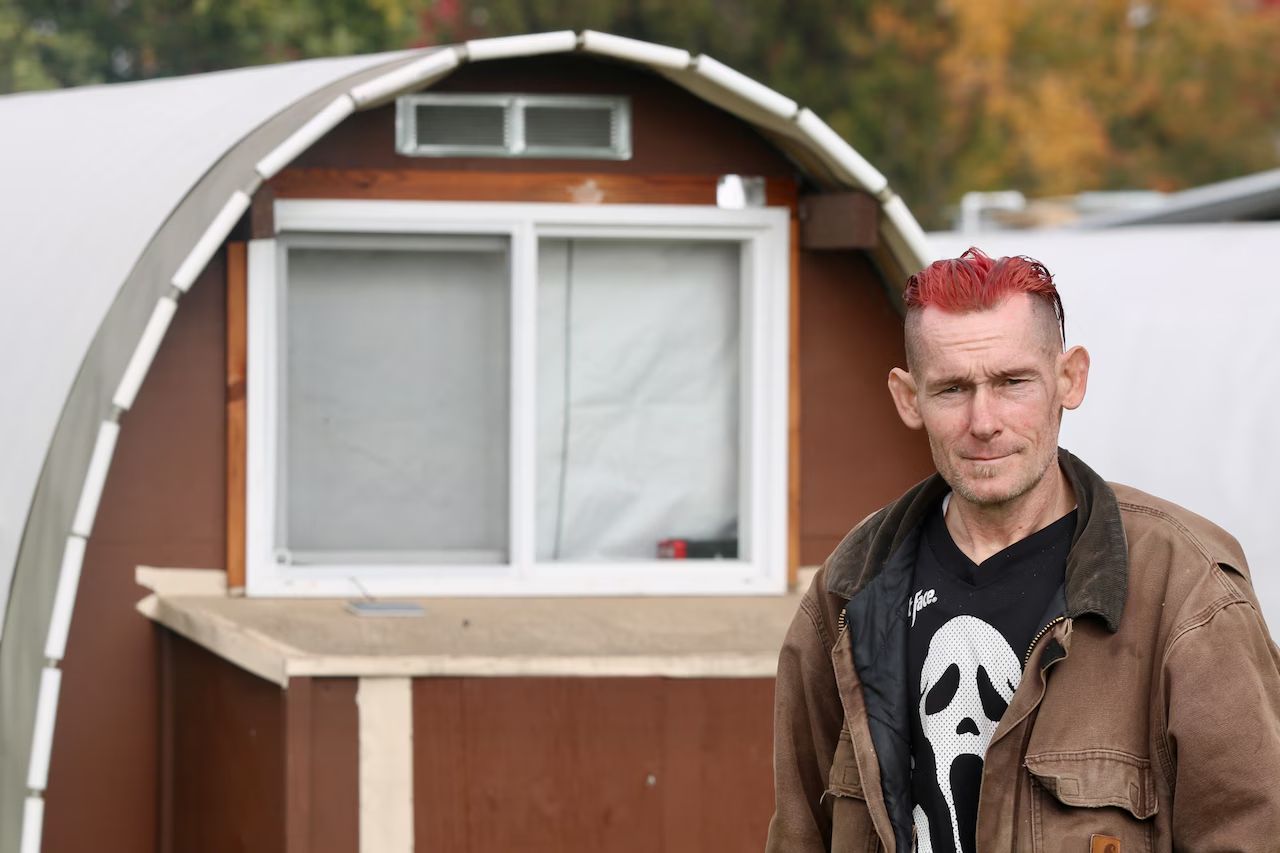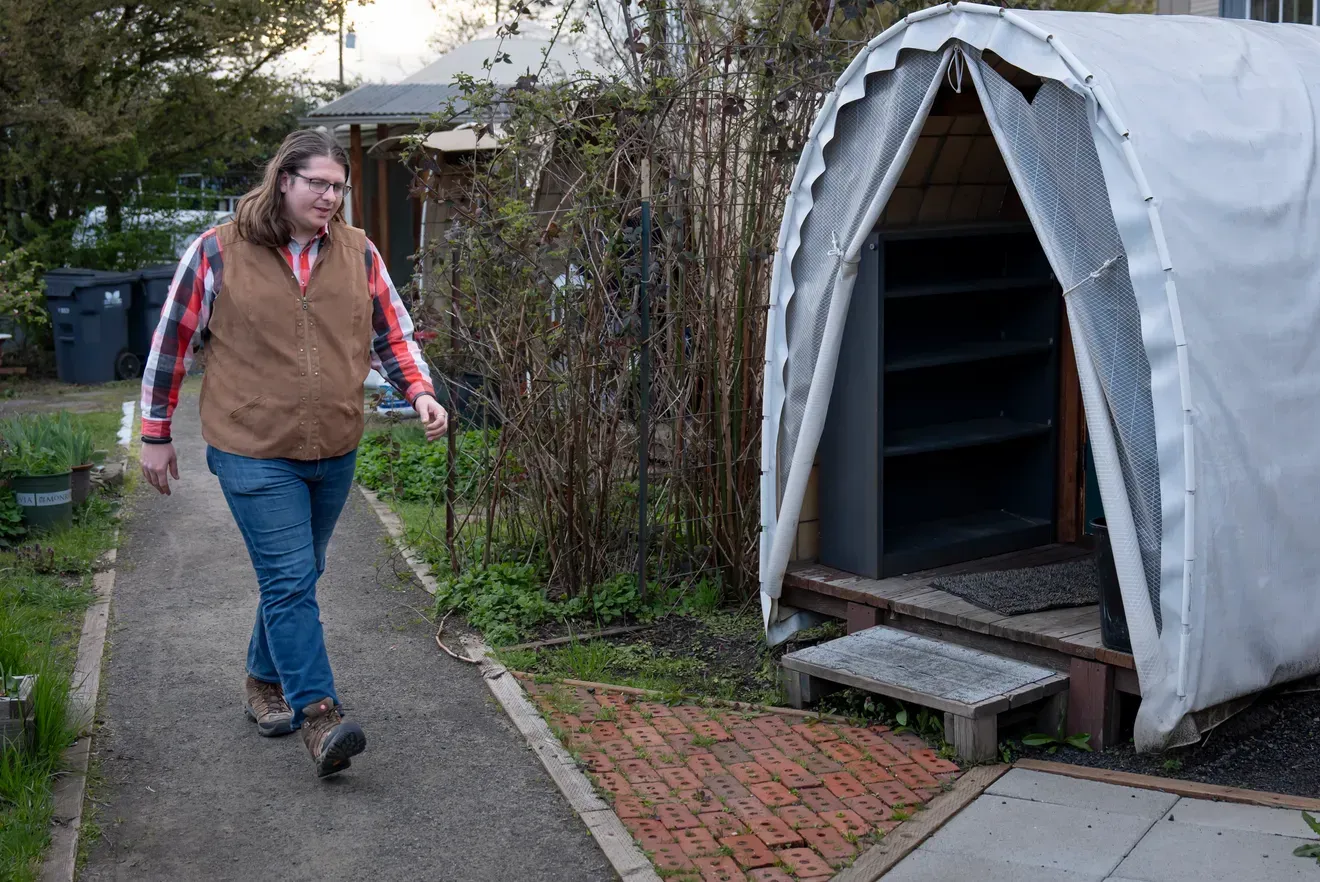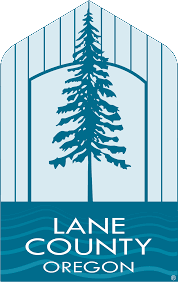Partnership with the City: Dramatic Growth Propels CSS into 2021
Nov. 27, 2020
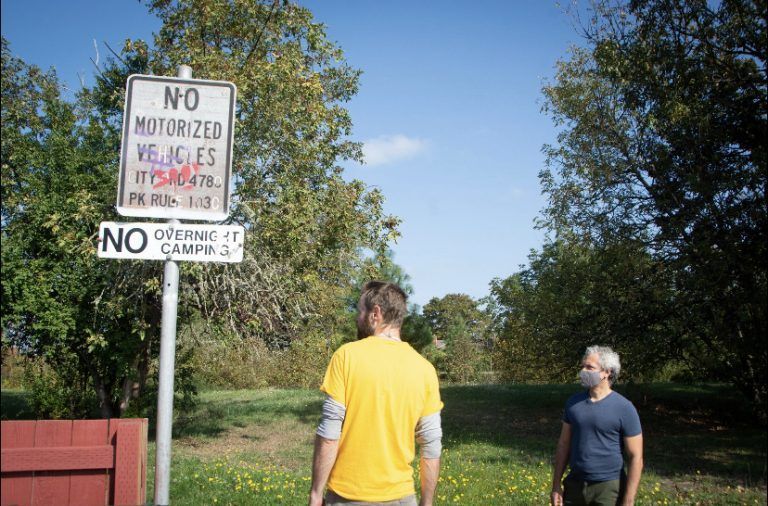
Chief Operating Officer Erik de Buhr and Peter Chavannes, Homeless Systems Policy Manager for the City of Eugene, tour potential Safe Spot camp sites.
In its first seven-and-three-quarters years of existence, Community Supported Shelters built and placed just shy of 150 Conestoga Huts. In the final quarter of 2020, CSS is in the midst of a dramatic expansion in an effort to add 100 Huts at five Safe Spots in a matter of months.
“It’s totally crazy,” says Erik de Buhr, CSS director of operations.
Sudden expansion of available sites for Safe Spots and Huts has been raised as a possibility so many times before—and gone nowhere—that you can’t blame Erik for being skeptical when the city approached him in September about making this expansion happen so quickly.
Then on September 30, the Eugene City Council approved the establishment of the new rest stop sites, with the intent of having them operational by the end of the year.
And the wheels at CSS revved into high gear. Despite his honest assessment of the craziness of this undertaking, Erik welcomes the challenge, “We’ve been in a small, protective state, trying not to grow too quickly, making sure that we understand what we do and how we do it.” Now, he says, “CSS as a concept is ready to grow—that’s the main reason I want to move forward with this.”
The Covid 19 pandemic is the primary force driving this push by the city. Shelters that crowd homeless people into shared indoor spaces—known as “congregate housing”—are less favored with an infectious virus on the loose. Covid has also greatly reduced the available spots in the Egan Warming Center program, which provides refuge from the coldest winter nights. And the city had federal funding available through the Coronavirus Aid, Relief, and Economic Security program that has to be spent by the end of the year.
For CSS, this has meant a dramatic increase in staffing and work by volunteer Hut builders, subcontracting Hut component construction to an outside firm, Essex Construction, as well as restructuring the service team.
By mid-November, three positions had been added to the CSS building and infrastructure team. Essex Construction will build about 70 Huts worth of wall and floor components, as well as decks. CSS staffers will build walls for the other new Huts, and volunteers will prepare other Hut components, such as steps, insulation, and roofing.
The sites designated for the new Safe Spots—spread throughout Eugene—require a significant amount of preparation before Huts can be assembled on them, including fence construction, grading, and access, which in some cases involves road building, something CSS hasn’t done before.
The fifteenth Hut and a gravel walkway were built at the Skinner City Farm site on November 12, completing the first phase of development at that Safe Spot.
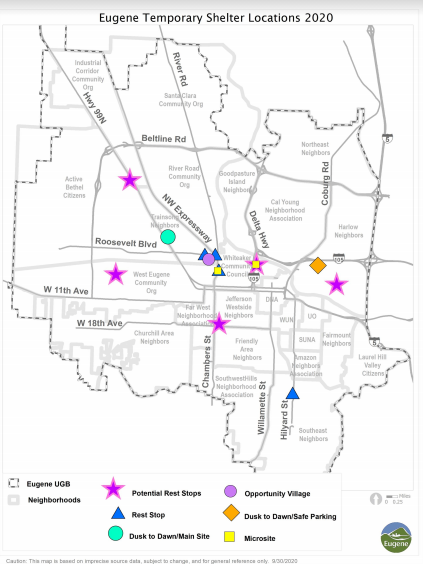
But the physical infrastructure is just the beginning of CSS work. The longer term challenge is in the services that are the heart of the CSS program. “The service team supports people emotionally and mentally,” Erik says. “Not that the infrastructure doesn’t also do that, but it’s the way that we interact with people, that’s where the magic happens.”
The service staff will expand from four people working about 30 hours a week, about three full-time equivalents (FTE), to about ten FTE. And the way services are provided will be restructured to be more specialized. Each Safe Spot or Microsite has had a camp facilitator, who serves as a go-to resource for everybody in the camp. Now, service staff will serve in three different roles for the eight camps: peer support specialists, who build relationships with camp residents to support social continuity and reinforce program standards (five FTE); camp facilitators, who manage group processes, including meetings and conflict resolution (two FTE); and service navigators, who help residents find and work with other social service agencies after their needs have been identified with help from the peer support specialists and camp facilitators (three FTE).
Erik expects the peer support specialists will come from people with experience in the program, either as a camp resident or a volunteer. One of the current camp facilitators, who will continue in the new structure, previously lived in two of the Safe Spots.
“We really like to hire from our camp pool or volunteer pool first,” Erik says. On the infrastructure side, at least two staffers are or have been camp residents and one started as a volunteer.
“They’re socialized to our culture. The kind of culture that we try to nurture is something that’s just not done elsewhere.”
As it grows, CSS has to avoid the mindset where “efficiency rules and cutting costs and doing things as cheaply as possible is what really matters,” Erik says. “Or treating people as if they’re disposable.
“I feel a constant concern that if we grow too fast and we introduce too many people into the organization, it’s so easy for that to creep in because we’ve all been raised in a capitalistic environment. We can’t create the same environment that has injured the people we work with.
“We have to learn to recover from that, so we can live cooperatively.”
“That’s challenge number one, I would say—staying true to our ideals and values.”
The second biggest challenge, Erik says, is scaling up funding income to sustain this level of growth. Although government funding is covering most of the cost of the initial build up, it is not a sufficiently “constant and consistent” source to run the program. “There’s going to be 18 months of funding and after that, basically our donors and, maybe, unrestricted grants are going to have to provide our operations expenses, which we’re going to try to keep as low as possible but we will have to have a significant number of employees.”
“Risk number two in this is growing but not having the resources to sustain that growth,” he says.
Challenge number three is that growth leads to more growth. “This is just the first leap,” Erik says. The city still has plans for more Microsites. And a church in the River Road area is ready for five Huts whenever CSS can fit them into its schedule, with talk of more small sites in that neighborhood.
“For whatever reason, all of a sudden there’s all this social will,” Erik says. “And it’s really hard to tell social will, ‘Oh, no. We can’t do that.’ We want to be able to ride that wave.”
Erik understands that the challenges presented by this growth spurt are a result of the success CSS has had in making a real difference in addressing the ongoing crisis of homelessness and in garnering community support.
And he clearly understands the bottom line of all the risks involved: “It’s either going to make or break us,” he says.
But showing that the CSS model can work on a larger scale is what the organization has been building toward throughout its history.
“We’re going to change,” Erik says. “It’s hopefully going to change CSS for the better. The scalability question has been on the table for a long time. We obviously see that there’s a need to scale up. But the question is, ‘Can we scale up?’”
News & Events
To stay connected to CSS, subscribe to our quarterly newsletter. If you are a member of the media who is seeking info, contact
community@cssoregon.org.
